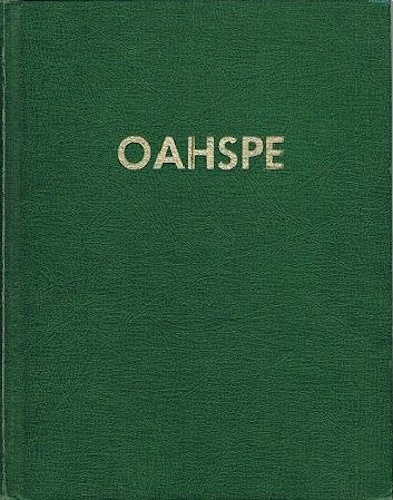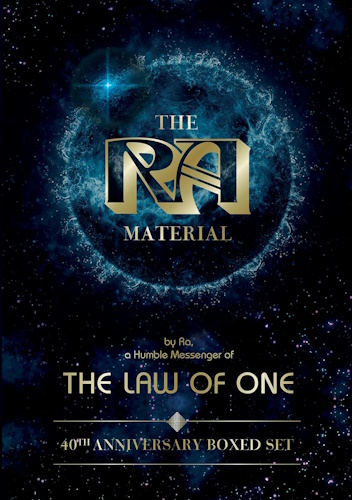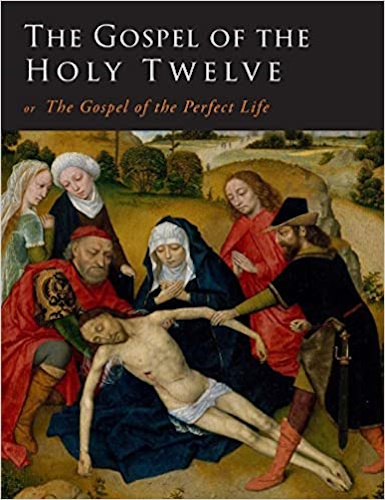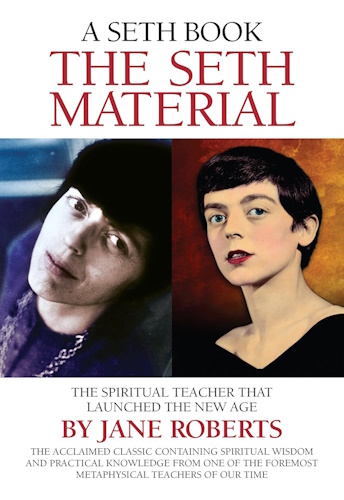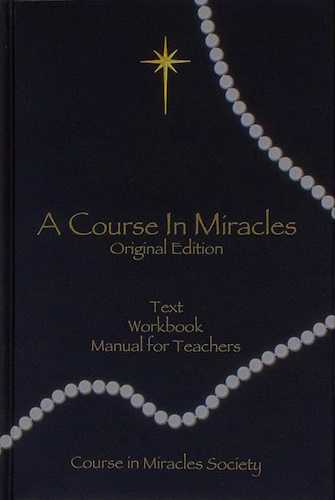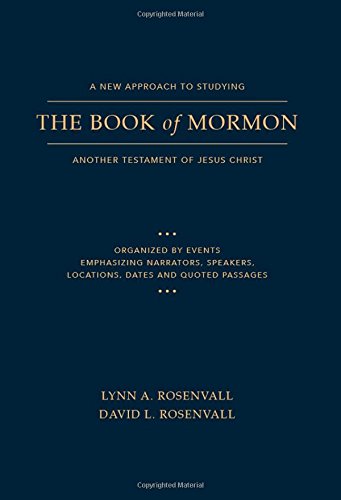
![]()
![]()
Book of the Arc of Bon
Chapter XI
1. JEHOVIH said to Capilya: My chosen shall not have kings; I, Jehovih, am King. As through Zarathustra I gave rab'bahs and chief rab'bahs, so have I through thee; and their families are My families.
2. Kings and kingdoms of men I give to the unrighteous; for they, perceiving not Me, for I am the higher law, shall have that that they can perceive, which is the lower law.
3. A kingdom is thrust upon thee; what wilt thou? Capilya said: What
p. 490b
shall I do, O Jehovih? Jehovih answered, saying: Suffer thyself to be proclaimed at home and in the provinces, after which thou shalt ratify the laws, and then abdicate, and the kingdom shall fall into other hands.
4. Capilya was proclaimed, and thenceafter known as king Capilya, and he abdicated, and then Heloepesus became king, and he became obligated to Capilya, so that the latter, though not king, stood as a protector over the Faithists, even greater than Heloepesus, nor could any laws be enacted affecting the Faithists without the consent of Capilya.
5. Jehovih had said: My people shall be a separate people; they shall live under My laws, for I am their King.
6. Now the whole time, from Capilya's first beginning of the restoration of the Zarathustrians (Faithists), until establishing a protectorate for them, was five years. After this Capilya traveled about, east and west, and north and south, collecting together the scattered remnants of his people; and he established them in colonies, and taught them not only rites and ceremonies, but taught the lost arts of tilling the soil and of making fabrics out of hemp and wool and silk; and he established schools and provided teachers for the people.
7. Capilya said: The first virtue is to learn to find Jehovih in all things, and to love and glorify Him.
8. The second virtue is Cleanliness; all peoples, old and young, shall bathe once a day.
9. The third virtue is to eat no fish nor flesh, nor other unclean thing; for of what profit is it to bathe the outer part if one putteth filth within?
10. The fourth virtue is Industry. Because the Father gave man neither feathers, nor hair nor wool; let it be testimony of His commandment that man shall clothe himself. To clothe one's self, and to provide one's self with food; these are the enforced industry upon all people. In addition to
p. 491b
these, to labor for the helpless; to bathe them and feed them, and house them and clothe them; these are the volunteer industries permitted by the Father that ye may prove your soul's worthiness before Him. Without industry no people can be virtuous.
11. One of the rab'bahs asked him what Industry was? To this Capilya replied: To keep one's self in constant action to a profitable result. To rise before the sun and bathe and perform the religious rites by the time the sun riseth; and to labor thereafter not severely but pleasantly until sunset, this is Industry. The industrious man findeth little time for satan's inspiration.
12. The fifth virtue is of the same kind, which is Labor. There shall be no rich amongst you; but all shall labor. As ye develop your corporeal bodies unto strength by reasonable labor, so doth the act of labor develop the spirit of man to profitable growth for its habitation in heaven. For I declare unto you a great truth, which is, that the idle and the rich, who labor not with the corporeal body, are born into heaven helpless as babes.
13. The sixth virtue, which is greater than all the rest, is Abnegation of one's self. Without Abnegation no man shall have peace of soul, either on earth or in heaven. Consider what thou doest, not that it shall profit thyself, but whether it will benefit others, even as if thou wert not one of them. Without the sixth virtue no family can dwell together in peace.
14. The seventh virtue is Love. Consider when thou speakest whether thy words will promote love; if not, then speak not. And thou shalt have no enemies all the days of thy life. But if thou canst justly say a good thing of any man, be not silent; this is the secret to win many loves.
15. The eighth virtue is Discretion, especially in words. Consider well, and then speak. If all men would do this,
p. 492b
thou wouldst be surprised at the wisdom of thy neighbors. Discretion is a regulator; without it, man is like a tangled thread.
16. The ninth virtue is System and Order. A weak man, with System and Order, doeth more than a strong man without them.
17. The tenth virtue is Observance. With Observance a man accepteth from the ancients such things as have been proven to be good, such as rites and ceremonies. Without Observance a man beginneth back even with the earliest of the ancients, and thus casteth aside his profit in the world.
18. The eleventh virtue is Discipline, the Discipline for the individual and the family. He who hath not Discipline is like a race-horse without a rider. A time to rise; a time to eat; a time to pray; a time to dance; a time to labor; these are good in any man; but the family that practiceth them in unison with one another hath Discipline.
19. The twelfth virtue is like unto it, and is Obedience. All good and great men are obedient. He that boasteth his disobedience to discipline is a fool and a madman. Greater and better is the weak man of obedience, than the strong man of defiance. For the one promoteth the harmony of the family; but the other ruptureth it.
20. Consider these twelve virtues; they are sufficient laws unto the whole world. Man may multiply books and laws forever, but they will not make the family, nor colony, nor state, happy, without the adoption of these twelve virtues.
-
Urantia Book, 44:0.11 - The Celestial Artisans
Never in your long ascendancy will you lose the power to recognize your associates of former existences. Always, as you ascend inward in the scale of life, will you retain the ability to recognize and fraternize with the fellow beings of your previous and lower levels of experience. Each new translation or resurrection will add one more group of spirit beings to your vision range without in the least depriving you of the ability to recognize your friends and fellows of former estates.
-
Princess Bride 1987 Wallace Shawn (Vizzini) and Mandy Patinkin (Inigo Montoya)
Vizzini: HE DIDN'T FALL? INCONCEIVABLE.
Inigo Montoya: You keep using that word. I do not think it means what you think it means. -
Urantia Book, 117:4.14 - The Finite God
And here is mystery: The more closely man approaches God through love, the greater the reality -- actuality -- of that man. The more man withdraws from God, the more nearly he approaches nonreality -- cessation of existence. When man consecrates his will to the doing of the Father's will, when man gives God all that he has, then does God make that man more than he is.
-
Urantia Book, 167:7.4 - The Talk About Angels
"And do you not remember that I said to you once before that, if you had your spiritual eyes anointed, you would then see the heavens opened and behold the angels of God ascending and descending? It is by the ministry of the angels that one world may be kept in touch with other worlds, for have I not repeatedly told you that I have other sheep not of this fold?"
-
Urantia Book, Foreword - 0:12.12 - The Trinities
But we know that there dwells within the human mind a fragment of God, and that there sojourns with the human soul the Spirit of Truth; and we further know that these spirit forces conspire to enable material man to grasp the reality of spiritual values and to comprehend the philosophy of universe meanings. But even more certainly we know that these spirits of the Divine Presence are able to assist man in the spiritual appropriation of all truth contributory to the enhancement of the ever-progressing reality of personal religious experience—God-consciousness.
-
Urantia Book, 1:4.3 - The Mystery Of God
When you are through down here, when your course has been run in temporary form on earth, when your trial trip in the flesh is finished, when the dust that composes the mortal tabernacle "returns to the earth whence it came"; then, it is revealed, the indwelling "Spirit shall return to God who gave it." There sojourns within each moral being of this planet a fragment of God, a part and parcel of divinity. It is not yet yours by right of possession, but it is designedly intended to be one with you if you survive the mortal existence.
-
Urantia Book, 1:4.1 - The Mystery Of God
And the greatest of all the unfathomable mysteries of God is the phenomenon of the divine indwelling of mortal minds. The manner in which the Universal Father sojourns with the creatures of time is the most profound of all universe mysteries; the divine presence in the mind of man is the mystery of mysteries.
-
Urantia Book, 1:4.6 - The Mystery Of God
To every spirit being and to every mortal creature in every sphere and on every world of the universe of universes, the Universal Father reveals all of his gracious and divine self that can be discerned or comprehended by such spirit beings and by such mortal creatures. God is no respecter of persons, either spiritual or material. The divine presence which any child of the universe enjoys at any given moment is limited only by the capacity of such a creature to receive and to discern the spirit actualities of the supermaterial world.
-
Urantia Book, 11:0.1 - The Eternal Isle Of Paradise
Paradise is the eternal center of the universe of universes and the abiding place of the Universal Father, the Eternal Son, the Infinite Spirit, and their divine co-ordinates and associates. This central Isle is the most gigantic organized body of cosmic reality in all the master universe. Paradise is a material sphere as well as a spiritual abode. All of the intelligent creation of the Universal Father is domiciled on material abodes; hence must the absolute controlling center also be material, literal. And again it should be reiterated that spirit things and spiritual beings are real.
-
Urantia Book, 50:6.4 - Planetary Culture
Culture presupposes quality of mind; culture cannot be enhanced unless mind is elevated. Superior intellect will seek a noble culture and find some way to attain such a goal. Inferior minds will spurn the highest culture even when presented to them ready-made.
-
Urantia Book, 54:1.6 - True And False Liberty
True liberty is the associate of genuine self-respect; false liberty is the consort of self-admiration. True liberty is the fruit of self-control; false liberty, the assumption of self-assertion. Self-control leads to altruistic service; self-admiration tends towards the exploitation of others for the selfish aggrandizement of such a mistaken individual as is willing to sacrifice righteous attainment for the sake of possessing unjust power over his fellow beings.
-
Urantia Book, 54:1.9 - True And False Liberty
How dare the self-willed creature encroach upon the rights of his fellows in the name of personal liberty when the Supreme Rulers of the universe stand back in merciful respect for these prerogatives of will and potentials of personality! No being, in the exercise of his supposed personal liberty, has a right to deprive any other being of those privileges of existence conferred by the Creators and duly respected by all their loyal associates, subordinates, and subjects.
-
Urantia Book, 54:1.8 - True And False Liberty
There is no error greater than that species of self-deception which leads intelligent beings to crave the exercise of power over other beings for the purpose of depriving these persons of their natural liberties. The golden rule of human fairness cries out against all such fraud, unfairness, selfishness, and unrighteousness.
